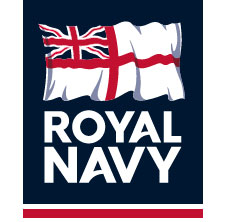Commander Adam Northover - Fleet Navigator, Fleet Seamanship Officer and MoD Boats Manager - Royal Navy
Though originally from Cambridgeshire, Adam grew up by the sea from a young age in Cornwall and joined the Royal Navy as a Warfare Officer in 1995. Early appointments included the Hong Kong Squadron serving in the Patrol Craft HMS Peacock, and Officer of the Watch in HMS Iron Duke during the Kosovo crisis.
Following Navigation training he was appointed to the Falkland Islands Patrol Vessel, HMS Dumbarton Castle as Navigating Officer, and then the Type 42 Destroyer HMS Nottingham.
Following Initial Command and Staff Course and Principle Warfare Officer Training, he was appointed as PWO (Underwater) in HMS York, he was involved in anti-piracy operations off the Horn of Africa and a deployment to the Far East. Selected for Specialist Navigation training in Jan 2006, he joined Flag Officer Sea Training (FOST) in Devonport as a Navigation Staff Officer. A two-year appointment as Senior Navigator and Operations Officer of the Royal Navy’s Ice Patrol Ship, HMS Endurance followed. This appointment included six operating periods in Antarctica, and two in West Africa.
Selected for Command in 2008, he became CO of MCM 2 Crew 2 in 2009 embarked in HMS Brocklesby. A busy period bringing the ship back from extended maintenance to the Front Line followed. His Crew then took over HMS Chiddingfold in the Arabian Gulf, and he finally concluded his command of Crew 2 in HMS Cattistock conducting UK operations.
A reluctant return to shore followed, with a hugely rewarding two years as SWO(N) to FOST in Devonport, leading a capable team providing training to countries as diverse as the United States, Norway, Netherlands, Algeria and Portugal, as well as Royal Navy vessels generating for operations. An appointment as OiC of the Navigation Training Unit in HMS Collingwood was undertaken before being selected to create, develop and fill the position of SO1 Pipeline Coherence at FOST HQ in NCHQ in the acting higher rank. Here he refined throughput of RN personnel from the careers office to the front line optimising training and eradicating areas of inefficiency; for this work he was awarded a Second Sea Lord’s Commendation.
Selected for promotion to Commander whilst on ACSC, where he gained a Masters Degree in Defence Studies, Adam joined the Royal Naval Division at the Joint Services Command and Staff College as Director in July 2017, and then moved to Naval Command HQ to assume the role of Fleet Navigator in May 2018.
Why Fundamental Navigation Principles still matter in the Digital Age
In January 2019 the US Senate Select Committee on Intelligence released their ‘Worldwide Threat Assessment’ stating that China, Russia, Iran and North Korea all pose threats to the US and other nations’ infrastructure on ground and in space. It goes on to state that all four nations, plus criminal organisations have the ability to ‘cyber-attack’ to create local disruptions to critical infrastructure. Russia has jammed GPS signals in conflict zones, and has been accused of jamming signals in Norway. There are open source reports to suggest that China is using GPS jamming technology around the disputed Spratley Islands.
In Winston Churchill’s book, The Second World War, Vol 2: Their Finest Hour, Churchill wrote ‘the only thing that ever really frightened me during the war was the U-boat peril. Invasion, I thought, even before the air battle, would fail’. The importance of the threat they posed to Britain’s Atlantic lifeline was recognised. If the Nazis gained control of the seas, then Britain would lose her centre of gravity, the source of vital stores and supplies. Britain, in all likelihood, would have been starved into submission, and her armies would not have been equipped with American tanks and weapons. Nazi Germany recognized the value of investing in these boats, and their importance in defeating the allies.
Arguably today, the ability to prevent merchant shipping from reaching its destination is easier and cheaper than building Wolf Packs to patrol the approaches to a country. Using deception is simpler, quicker, and can have the same effect. An over-reliance on GPS threatens our ability to operate at sea, and an ability to revert to basic principles when threatened with denial is essential to ensure that Britain continues to function in the face of these threats.
Download NEXT GEN Workshops April 2019 Presentation (password required)











